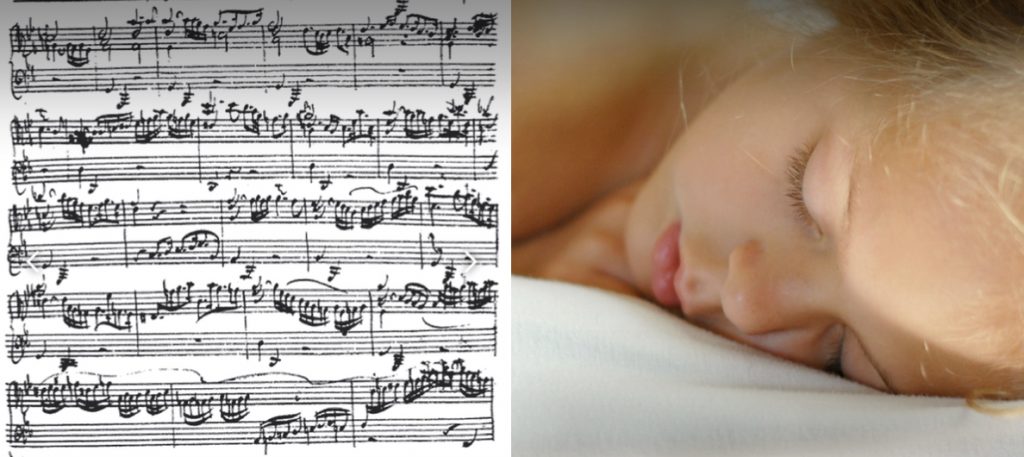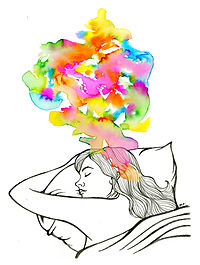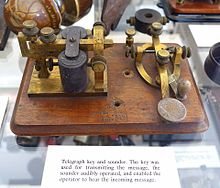
Title of paper under discussion
The influence of sleep on auditory learning: a behavioral study
Authors
Nadine Gaab, Miriam Paetzold, Markus Becker, Matthew P. Walker and Gottfried Schlaug
Journal
Neuroreport, 2004; vol 15 no4 pp 731-4
Link to paper (free access)
Overview
Improvement due to practising a skill is known to continue – without further practice – following a sleep. This phenomenon is called ‘delayed learning’, and is seen across all mammals, including rats learning to navigate a T-maze. Nadine Gaab and her colleagues at Harvard University set out to investigate if this phenomenon also held true for auditory learning. Participants in a ‘pitch memory’ task were divided into two groups. The “Morning Group” first trained in the task at 9am, were tested later that day at 9pm, then tested again (after a sleep) at 9am. The “Evening Group” were first trained at 9pm, had a sleep, then tested at 9am, and again at 9pm. Both groups showed significant ‘delayed learning’, but only in the test following a sleep.

Introduction – REM sleep
Scientists believe that consolidation of skill learning takes place during a phase of the sleep cycle called Rapid Eye Movement (REM) sleep. REM sleep is known to increase (in length and number of episodes) after skill practice. Most previous research had concentrated on consolidation of motor skills or visual skills, hence this paper’s importance – they were looking at consolidation of a purely auditory skill. One earlier piece of research was, at least, on a motor/auditory skill – Morse code tapping; it showed that trainee Morse tappers do indeed have more REM sleep after practice, and that the more REM sleep they have the better their performance at Morse the next day.

Method
56 volunteers were divided into two teams: 28 people in “Morning Group” (who were to be trained in the morning) and 28 people in “Evening Group (to be trained in the evening).
The test (task) for each participant under training was to listen to a sequence of 6-7 tones (the sequence lasting about 5 seconds). They were then asked to compare the first tone with the last tone (or the second-to-last tone) in the sequence, and say whether the two pitches were the same or different.
Each participant attended three sessions, and each session was spaced 12 hours apart. “Morning Group” had Session 1 at 9am, Session 2 at 9pm the same day and Session 3 at 9am the following day. “Evening Group” had Session 1 at 9pm, Session 2 at 9am the following day and Session 3 at 9pm (12 hours later).
Each of those sessions comprised four 8-minute trials; two trials (“Testing 1” and “Testing 2”) were simply a series of tests, whereas in the two other trials (“Training 1” and “Training 2”) participants were given visual feedback after each test, telling them whether their answer was “correct” or “incorrect”.
Results
Overall, both groups showed improvement in success rate at the task after a sleep.
Within Session 1, all participants (from both groups) improved: their “Testing 2” results were significantly better than their “Testing 1” results, having clearly learnt from “Training 1” and “Training 2”. There was no “diurnal” difference here: the “Morning Group” achieved the same ‘within-session’ improvement rate as the “Evening Group”.
Performance improvement between Session 1 and Session 2 depended on whether or not they had had a sleep. For the “Morning Group” Session 2 came the same day as Session 1, and the improvement between the two sessions was very mild (under 2%). For the “Evening Group”, Session 2 was the following day, after a sleep – and the improvement was significantly stronger at about 6%.
Performance improvement between Session 2 and Session 3 likewise depended on whether or not they had had a sleep. For the “Morning Group” Session 3 followed a sleep, and the improvement from Session 2 was marked (about 12%). For the “Evening Group”, Session 3 was the same day as Session 2 – and the performance actually deteriorated (falling by over 2%).
There was no significant improvement within Session 2 or within Session 3 for either group.

Discussion
Gaab and her colleagues had demonstrated that “additional learning takes place in absence of further practice”, but that “the delayed learning occurred exclusively across time periods containing sleep, and not across equivalent periods of daytime wakefulness, regardless of whether the time awake or time asleep came first”.
Apart from the data that depended on the relative placement of Sleep and Sessions, both the “Morning Group” and the “Evening Group” returned very similar results in their tests, suggesting to the experimenters that ‘circadian factors’ were not at play in these findings – the ‘delayed learning’ was down to whether they had slept between sessions, not the timing of those sessions per se.
In conclusion, the authors write “Our results therefore suggest that sleep plays a critical role in the consolidation of an auditory skill task”, which “adds an important piece to the growing body of literature that shows the influence of sleep on procedural learning..”

Coda
Evening Prayer (“Abends will ich schlafen gehn”) from ‘Hänsel und Gretel’ by Engelbert Humperdinck
Kathleen Battle, Frederica von Stade
Orchestra of St Luke’s, cond. by André Previn